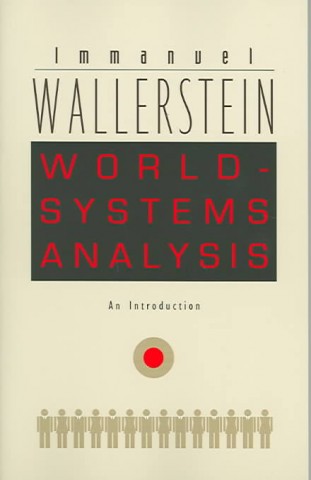Immanuel Wallerstein, an American sociologist at Yale, developed the world-systems approach, which he has written about and developed for more than four decades –first published in The Modern World-System in 1974. In 2004 he authored World-Systems Analysis: An Introduction as a means to present the theory in a concise way, largely for those unfamiliar with it. The need for a different approach for analysis, Wallerstein argues, is that "we have studied these phenomena in separate boxes to which we have given special names – politics, economics, the social structure, culture – without seeing that these boxes are constructs more of our imagination than of reality. The phenomena dealt with in these separate boxes are so closely intermeshed that each presumes the other, each affects the other, each is incomprehensible without taking into account the other boxes" (p. x). Drawing upon that introductory work, two interesting themes were explored:
(Re)Framing capitalism:
- "Capitalism is not the mere existence of persons or firms producing for sale on the market with the intention of obtaining a profit. Such persons or firms have existed for thousands of years all across the world. Nor is the existence of persons working for wages sufficient as a definition. Wage-labor has also been known for thousands of years. We are in a capitalist system only when the system gives priority to the endless accumulation of capital." (p. 23-24)
- "Braudel's influence was crucial in two regards. First, in his later work on capitalism and civilization, Braudel world insist on a sharp distinction between the sphere of the free market and the sphere of monopolies. The called only the latter capitalism and, far from being the same thing as the free market, he said that capitalism was the "anti-market." This concept marked a direct assault, both substantively and terminologically, on the conflation by classical economists (including Marx) of the market and capitalism." (p. 18)
On citizens and participation:
- "…the concept is so elementary that we find it hard to understand how radical was the shift from "subjects" to "citizens." To be a citizen meant to have the right to participate, on an equal level with all other citizens, in the basic decisions of the state. To be a citizen meant that there were no persons with statuses higher than that of citizens (such as aristocrats). To be a citizen meant that everyone was being accepted as a rational person, capable of political decision." (p. 51)
- "The liberty of the majority is located in the degree to which collective political decisions reflect in fact the preferences of the majority, as opposed to those of smaller groups who may in practice control the decision-making process. This is not merely a question of so-called free elections, although no doubt regular, honest, open elections are a necessary if far from sufficient part of democratic structure. Liberty of the majority requires the active participation of the majority. It requires access to information on the part of the majority. It requires a mode of translating majority views of the populace into majority views in legislative bodies." (p. 88)

